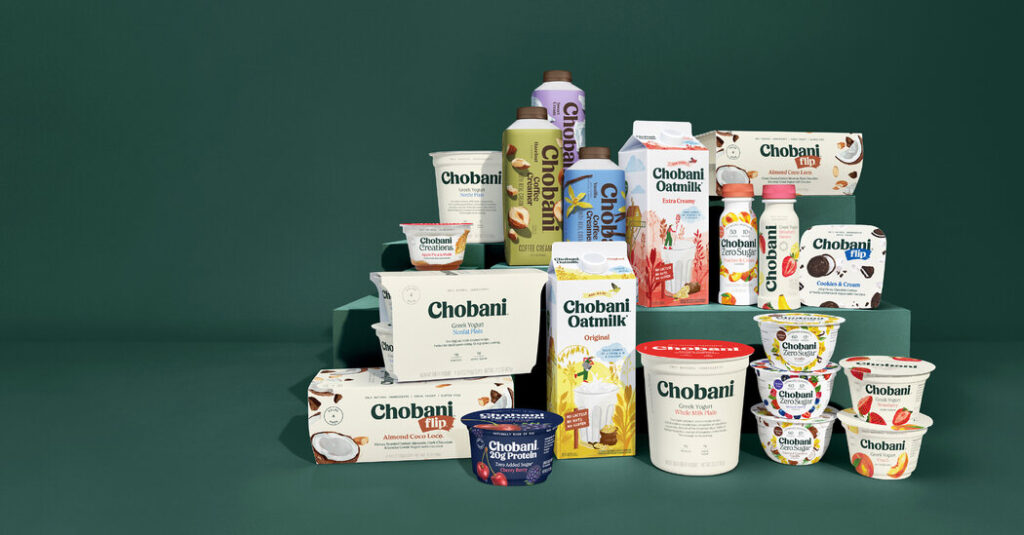Chobani started its journey in 2005 in New York State, taking over an old Kraft factory that had shut down, hiring a handful of former employees to create Greek-style yogurt.
Now, nearly two decades later, the company has become one of the leading dairy producers in the U.S. and is opening a new plant nearby, generating significant excitement and economic benefits.
On Tuesday, Chobani and New York State announced plans for a massive million-square-foot factory in Rome, N.Y. This facility will cost at least $1.2 billion and is projected to produce one billion pounds of dairy products annually. Company leaders believe it will be the largest dairy factory in the nation, aimed at meeting increasing demand.
“We’ve been growing, but that growth has accelerated significantly in recent years, requiring us to expand our capacity,” Chobani’s founder and CEO, Hamdi Ulukaya, explained in an interview. “These are steps we’re taking to prepare for and adapt to this growth.”
The new manufacturing facility is set to nearly double Chobani’s workforce in New York State, showcasing the company’s aspirations for growth. Chobani claims to be among the fastest-growing food companies in the United States, with last year’s net sales soaring 17 percent to $2.96 billion, and adjusted pretax earnings increasing by 26 percent to $509 million.
According to Nielsen data, Chobani now controls about 20% of the yogurt market in America. The company has also expanded its product range beyond Greek yogurt, venturing into creamers, oat milk, and, following its $900 million acquisition of La Colombe in 2023, coffee drinks. Additionally, Mr. Ulukaya recently purchased Anchor Brewing, a historic San Francisco brewery, after it closed down.
Last month, Chobani revealed plans to invest $500 million in expanding a factory in Idaho, which is anticipated to enhance production by 50%. New York officials, eager to strengthen the state’s position in the agribusiness industry, were highly motivated to secure Chobani’s largest facility yet.
This effort included offering millions in tax credits and grants to prepare a site in Rome. This investment was deemed worthwhile due to Chobani’s commitment of over $1 billion and the creation of more than 1,000 jobs in the Mohawk Valley, accounting for about a third of its current global workforce, according to New York Governor Kathy Hochul.
“We pursued this opportunity vigorously,” she stated in an interview, mentioning that her team faced competition from other states.
Chobani’s growth comes at a tough time for businesses overall. Trade tensions during the Trump administration disrupted supply chains, complicating the company’s ability to acquire specialized manufacturing equipment from Europe that it cannot source elsewhere.
Concerns about inflation have also pressured consumer-oriented businesses. “We’re very cautious about pricing,” Mr. Ulukaya noted, although Chobani has managed to maintain its costs through manufacturing advancements and better economies of scale.
He emphasized that Chobani will continue its socially responsible practices that distinguish it from many competitors. This includes providing generous employee benefits, worker housing, and a commitment to hiring refugees, which has been part of the company’s ethos.
Nine years ago, Ulukaya’s initiative to hire immigrants, starting with refugees in Utica, N.Y., drew backlash on social media and negative attention from certain websites. Despite a more restrictive immigration climate under the Trump administration, Mr. Ulukaya maintains his commitment and continues to work with the Tent Partnership for Refugees, a nonprofit he founded.
“We have to operate this way,” he asserted. “Everyone is welcome here.”
Looking ahead, Mr. Ulukaya indicated that a public offering could be in Chobani’s future. The company sought to go public in 2021, potentially valuing it in the billions, but postponed the plan due to unfavorable market conditions the following year.
He pointed to Chobani’s robust financial position and suggested that employees with stock options would gain from a public listing. However, for now, he emphasizes the focus on the substantial $1 billion investment the company is making in both New York State and Idaho.
“An IPO is a possibility,” he remarked. “But I’m still undecided.”


